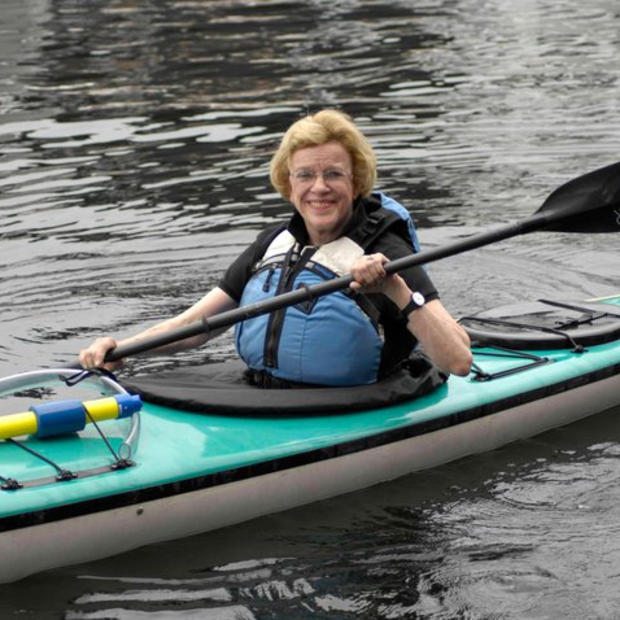Blogs and even reputable news sources lately are filled with premature death notices for Seattle’s soul. Take the piece in Gawker in August. Christopher Morris-Len wrote that “Seattle is dead and Amazon killed it.”
About the same time, the New York Times looked at the plight of oppressed Amazonians: men crying at their desks and women forced out over family responsibilities. And then, finally, a recent article by NYT reporter Nick Wingfield saying that Seattle is struggling to “keep its soul,” trying not to become an echo of San Francisco.
To be honest, this smells like schadenfreude. Who wouldn’t want to see the frontrunner a victim, done in by prosperity? After being dismissed for years as an upstart, the city suddenly becomes a poster child for the darker side of the tech boom. It's at a time when we really ought to be noticed for the innovative ways the city is rising to challenges: paid sick leave, minimum wage, paid parental leave and creating affordable housing.
It’s true that Seattle has had its up moments and its down intervals, starting back in the pioneer 1800s. Set to become the western terminus of the railroad, Seattle was snubbed in favor of Tacoma, the City of Destiny. Still optimistic, Seattle geared up to become the capital of the new state, confident enough to name one of its seven hills “Capitol Hill.” Alas. The city lost to Olympia and was given the new state university as a consolation prize.
In some respects, Seattle’s ability to morph from one identity to another is one of its greatest assets. In the 1960s post-World's Fair era, Seattle seemed destined to become nothing but a freeway crossroads for suburban motorists. The state highway department had plans for four Lake Washington bridges, three north-south freeways, an elevated Bay Freeway across South Lake Union and a 14-lane I-90. The city can thank a crew of citizen activists for saving Seattle from freeway mania.
And now the latest indignity: the sometimes anonymous and unattributed stories that Amazon is killing Seattle, followed by reports that blue-tagged “Amholes” are driving up rents, congesting freeways and usurping watering holes.
Seattle losing its soul? Hardly. That soul is alive and kicking having the 2000 Microsoft millionaires of the 1990s, coffee-crazed Starbucks outlets of the late nineties and tech-savvy gamesters of the oughts.
When it comes to preservation of “the real Seattle” during boom times the city should remember “Lesser Seattle” and the late Emmett Watson. A longtime newspaper columnist, Watson reacted negatively to “Greater Seattle,” a promotion backed by the Chamber of Commerce. He formed his own counter-movement dubbed “Lesser Seattle,” part joke, part column fodder. Watson advised readers to write relatives in Flatland USA, saying that it always rains in Seattle, that the city has disastrous floods, earthquakes and tsunamis. He invented an underground wing known as KBO for “Keep the Bastards Out,” something that amused readers, but gave fits to Chamber of Commerce folks and even the occasional clueless newspaper editor.
Despite Watson’s best tongue-in-cheek efforts, the city continues to grow and, even with our current growth spurt, Seattle’s soul remains intact.
The city still boasts its unique neighborhoods. There are still grand parks, a legacy of the Olmsted Brothers. There are still houseboats and quirky artifacts like the Hat and Boots in Georgetown, the yet-to-be-sited P-I Globe and the Troll in Fremont. There are enduring landmarks like the Pike Place Market, Space Needle and Dick’s Drive-In.
It would take a lot more than a few Amazonians crying at their desks to kill Seattle. Today, we’re bursting with next gen artists, activists, foodies, writers and entrepreneurs. In fact, it is Seattle’s everything-is-possible brand — give us a lemon and we’ll make Limoncello — that likely drew Amazon workers and others to this city.
Seattle has withstood strong tides before and, short of being killed, has actually become richer — philosophically, culturally and financially. Amazon hasn’t killed Seattle; hasn’t appropriated its soul. In fact, you could look at it the other way around: Seattle has absorbed Amazon, teaching a new generation how to do Bumbershoot, how to live without umbrellas and how to pronounce “geoduck.”



